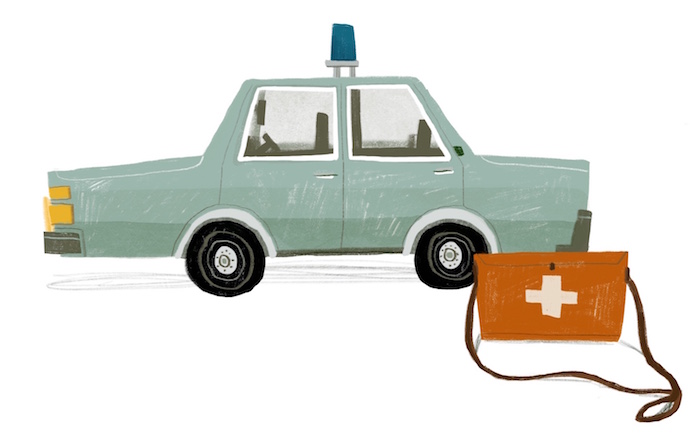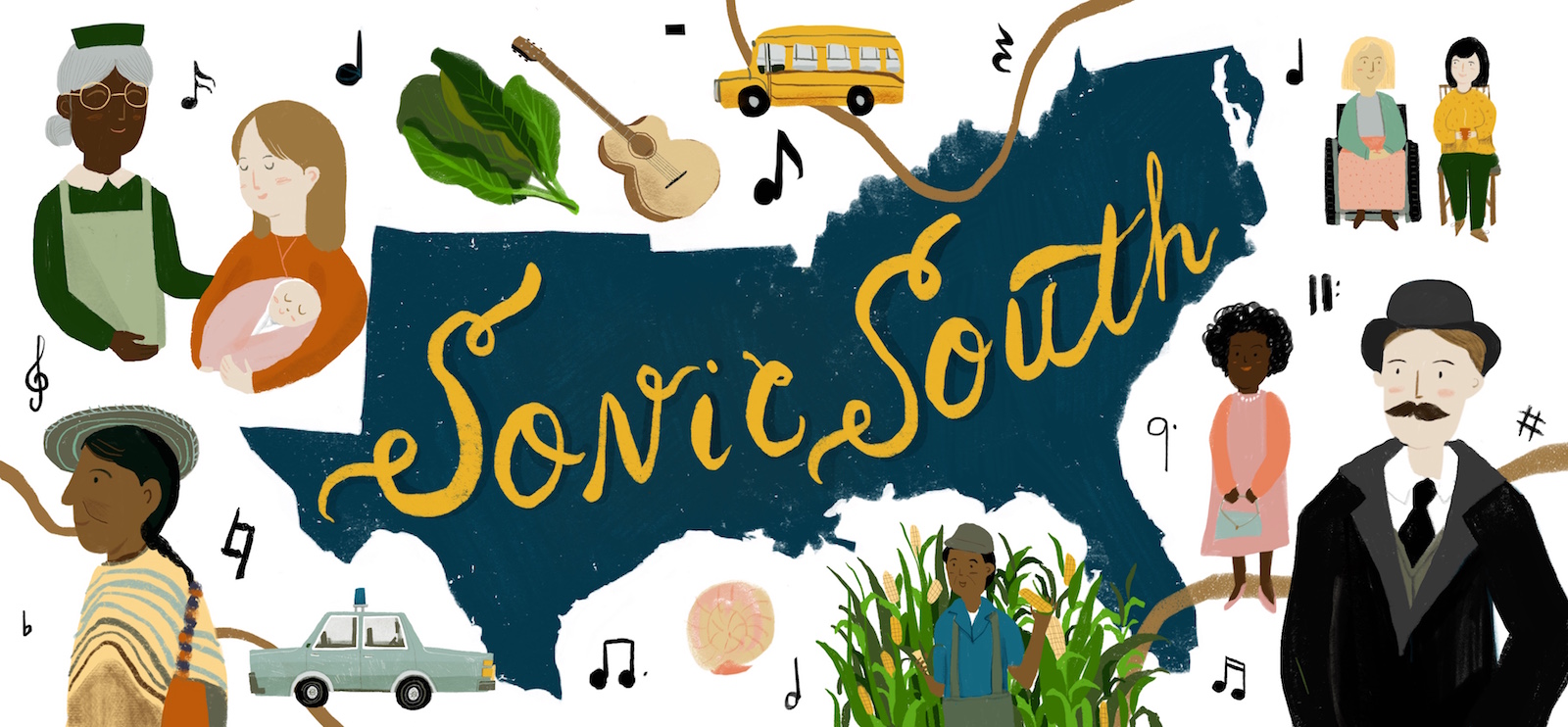An audio competition from the Southern Oral History Program.
The Southern Oral History Program (SOHP), housed across the hall from us at the Center for the Study of the American South, recently invited producers to use interviews in its collections to create new and thought-provoking short-form audio documentaries, sound art, sonic experiments, and aural landscapes for its Sonic South audio competition. Producers were encouraged to think creatively about format, structure, and style for this year’s theme, In Sickness & In Health. We’re highlighting four of the top entries below. Listen up!
Note: All interviews are archived in the Southern Oral History Program Collection #4007, Southern Historical Collection, Wilson Library, University of North Carolina at Chapel Hill.

Make Things Right for Humanity
by Wendy Spitzer (Sonic South Winner)
Dr. Andrew Best, an African American physician, recounts the story of coming upon a highway accident and saving a patrolman’s life in the early 1950s and his subsequent interaction with a white shop clerk immediately after the incident. Acting as a kind of Greek chorus, Doris Cochran (wife of Dr. Salter Cochran), Dr. James Slade, and his wife Catherine—other African Americans involved in health care in Eastern North Carolina during this era—foreshadow the themes of Dr. Best’s story and comment upon them. Though unrelated to the main story, the similarity of the topics speaks to the ubiquity of the maltreatment of African Americans during this time, even with regard to highly educated health practitioners. The piece is underscored with original music composed by Pennee Miles.
—Interview with Dr. Andrew Best by Karen Kruse Thomas, 19 April 1997 (R-0011).
—Interview with Dr. Salter Cochran and Doris Cochran by Karen Kruse Thomas, 12 April 1997 (R-0014).
—Interview with Dr. James Slade and Catherine Slade by Karen Kruse Thomas, 23 February 1997 (R-0019).
—Music: Pennee Miles (Wendy & Poffley Barnabas), “Late Night Cab.”
Mother Witby
by Monique Laborde
The practice of midwifery has a long history in the South, particularly among African American women, who carried the tradition of midwifery from slavery into the mid-19th century. These women were once essential to women’s health across the South. In this entry, Viola Brown Jones and Carrie McDonnell Stewart tell parts of their stories as midwives.
—Interview with Viola Brown Jones by Elaine Kelly Navies, April 29, 2000, C-0311.
—Interview with Albert Baker Peter Datcher by Shane Hand, 28 May 2012 U-0894.
—Interview with Mandy Carter by Bridgette Burge, July 11 2007 U-0559.
—Interview with Carrie McDonnell Stewart by Emily Herring Wilson, 26 January 1980 G-0278.
—Interview with Salter Cochran by Karen Kruse Thomas, 12 Arpril 1997 R-0014.
—Interview with James Slade by Karen Kruse Thomas, 23 February 1997 R-0019.

She Knows
by Grant Holub-Moorman (People’s Choice Winner)
In this audio piece, three black southerners share their own memories of midwives and birth. Carrie McDonnell Stewart, born in 1878, was a midwife to many other black mothers throughout the mountains of North Carolina. Peter Datcher was born in 1950 by midwife and a woman doctor. Dr. James Slade served as the only black physician in Edenton, North Carolina, and the surrounding area during the 1960s and ’70’s.
—Interview with Stewart, Carrie McDonnell by Emily Herring Wilson, 26 January 1980, G-0278.
—Interview with Datcher, Albert (Peter) IV by by Shane Hand, 28 May 2012, U-0894.
—Interview with Slade, James by Karen Kruse Thomas, 23 February 1997, R-0019.
—“Brown Baby, live at the Village Gate, by Nina Simone, recorded 1961. Cal Lampey, 1962. Rearranged.
Unspoken in the South
by Nora Knapp
Clips from two SOHP interviews discuss the idea of being “different” in the South and the silencing and erasure that comes with it. The clips are arranged over recordings of the producer’s voice singing “libera me” (“free me”), a line from the Requiem Mass that begs God to save the soul from eternal death.
—Interview with Quinton E. Baker by Chris McGinnis, 23 February 2002 (K-0838).
—Interview with Angela Brightfeather by Chris McGinnis, 24 January 2002 (K-0841).

